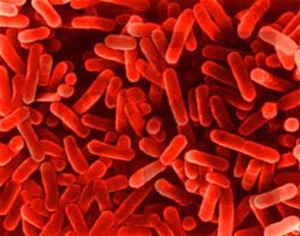Health & Safety Considerations
 Risk of Legionella & Legionnaire’s Disease
Risk of Legionella & Legionnaire’s Disease
Legionella bacteria is common in natural water and is harmless unless inhaled in an atomised form, when it can cause an infection known as Legionnaire's Disease. In water systems that have significant limescale deposits bacteria will thrive, particularly in cooling towers, hot and cold water systems, recirculated water humidifiers, spas and jacuzzis.
Conditions affecting the proliferation of Legionella:-
- The presence of scale deposits or algae growth in water
- Dead-legs in pipework or stagnation due to very low use of outlets
- Low temperatures in hot water heaters and distribution systems
- Stratification of water in water heaters
- Inappropriate water treatment
- Scaled hot water systems offer the perfect growing medium for bacteria and biofilms.
Bacteria, protected from heat and disinfectants, feed on calcium and therefore thrive in these environments, dramatically increasing the opportunities for legionella proliferation. At 50 degrees centigrade, it takes 2 hours to kill the bacteria. Maintaining a temperature of above 60 degrees is one sure way of being safe, however, without good water treatment these temperatures encourage severe scaling. What is required is a method of continuously controlling scale deposition and prevents the growth of biofilms – particularly Legionella Pneumophila.
ENiGMA fitted at strategic points in the system will prevent scale from forming in pipework and on heat transfer surfaces. It will also remove existing scale deposits. Other advantages to this non-intrusive engineering solution include:-
- Energy usage greatly reduced due to heat transfer surfaces remaining free from scale
- Corrosion brought about by scale eliminated
- Reduced downtime and labour costs involved in system descaling
- Source for colonisation by biofilms removed
- Water distribution efficiency and pressure increased as pipe inside diameters freed from scale deposits
- Reduced risk of explosion from scaled up safety valves
Scaled up safety valves have been known to lead to the explosion of hot water generators and calorifiers. The 1955 Factories Act Sub Section 40 states "a boiler and all its fittings must be properly maintained." Yet Health & Safety Officers are frequently called out to accidents where calorifiers, hot water generators and hot water heaters have exploded because safety valves, encrusted with limescale, have not operated correctly. If there is a build-up of pressure in the vessel and safety valves are not operating an explosion can occur causing severe damage and possible injury to personnel.
Over 100 cases of Legionnaires Disease are reported each year in England and Wales. One of the major changes in the UK prevention of Legionnaire's Disease is the approach to water management programmes introduced by The Health & Safety Commission's Code of Practice L8.
Legionnella is found in many recirculating hot and cold water systems particularly in larger, complex systems such as those found in hospitals, hotels, office blocks and factories. It is transmitted exclusively by inhalation of contaminated water droplets. High-risk areas are, therefore, primarily associated with showers, sprays, spray taps, taps with high water pressure and refrigeration and air conditioning cooling towers.